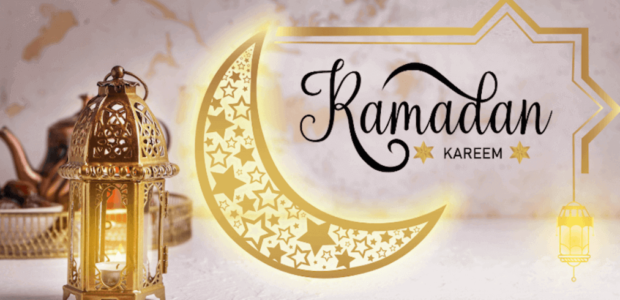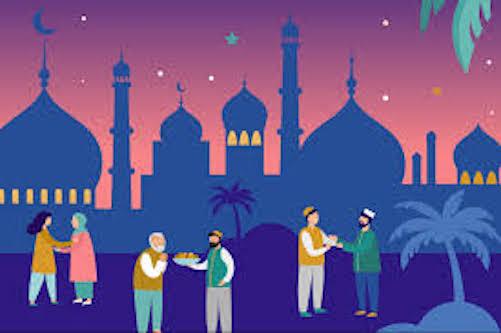
ETIQUETTE, GIFTS, SALES, AND MORE FOR RAMADAN 2023
Maulid Al-Nabi, Eid Al-Fitr, and Eid Al-Adha are a few Islamic holidays celebrated by Muslims. Eid-Al-Fitr, which falls during Ramadan, is the most significant. Numerous people meet on this day to rejoice by breaking their fast and reading verses from the Quran. Let’s learn more about this lovely day and what it has in store.
The ninth month of the Islamic lunar calendar is Ramadan, which is also the most sacred month for Muslims. Muslims around the world conduct a month-long fast from dawn till dusk during this time of prayer, fasting, and meditation. Eid al-Fitr, a happy holiday that commemorates the end of the month-long fast, is the culmination of Ramadan. It is seen as a time of increased spiritual discernment and self-control.

IN THE UAE, HOW IS RAMADAN CELEBRATED?
Worldwide, there are many different methods to observe Ramadan, with regional and cultural differences in the customs and traditions. Here are a few ways that the UAE observes Ramadan:
Fasting: One of the most important Ramadan rituals is fasting. Muslims fast from dawn till dusk, skipping meals and other physical demands. This method is thought to cleanse the soul and instill self-control and discipline.
Prayer: Taraweeh, or additional prayers, are offered by Muslims after the evening prayer during Ramadan.
Charity: Muslims are urged to give liberally to charity and carry out deeds of kindness during the holy month of Ramadan.
Muslims frequently congregate with friends and family to break their fasts together around dusk. Iftar is the name for this supper.
Night markets: During Ramadan, night markets are set up in several nations so that people can purchase food and beverages for the Iftar.
Ramadan lanterns: To commemorate the month of Ramadan, bright lanterns are hung in residences and public spaces in certain nations.
Eid al-Fitr: The holiday of Eid al-Fitr, which marks the conclusion of Ramadan, is a time for gathering with loved ones. Muslims typically feast together, share gifts, and dress newly.
WHAT DO PEOPLE DO DURING THE RAMADAN MONTH?
PRAYERS
Taraweeh, said following the evening prayer, is one of these unique prayers. The Quran is recited in its entirety during the Taraweeh prayers, with the aim of finishing it before the conclusion of Ramadan. Although some Muslims may do these prayers at home, they are usually offered in mosques in groups.
The Night of Power (Laylat al-Qadr), which is regarded as one of the holiest nights of the year, is another unique prayer said throughout Ramadan. Muslims stay up late at night to offer more prayers and seek Allah’s blessings. It is said that on this night, the benefits of good deeds are amplified many times over.

ZAKAT & SADAQAH
Sadaqah is a type of voluntary almsgiving that is permissible at any time and in any quantity. Islam does not require it, but it is thought to be a good deed that is rewarded by Allah. To help those in need, sadaqah might be given in the form of cash, food, clothing, or any other kind of gift. Good deeds like assisting a stranger cross the street or volunteering at a local event can also be used to grant sadaqah.
The Islamic charity Zakat, on the other hand, is required. It is one of Islam’s five pillars and is expected of all financially stable Muslims who meet certain requirements.
GO TO THE MOSQUE
Throughout Ramadan, Muslims congregate at the mosque to do the daily prayers, as well as the unique Taraweeh prayers that are offered after the evening prayer. The Imam normally leads these prayers, which are usually said in a group.
Mosques provide a place for Muslims to break their fasts together at sunset in addition to being places for prayer. Many mosques serve iftar meals to the neighbourhood, providing food and beverages for people who are fasting all day.
SUHOOR
Muslims eat suhoor before breaking their fast during Ramadan. It is a crucial component of the fasting practise and is often consumed in the early morning, before daybreak.
The suhoor meal is crucial because it gives Muslims who are fasting all day energy and sustenance. Muslims are advised to consume a healthy, balanced suhoor meal that includes complex carbs, protein, and healthy fats since these nutrients can help Muslims feel full and energised all day.
IFTAR
Muslims break their fast with dates and water after sundown, just as Prophet Muhammad did, after refraining from eating and drinking during the day. Following the evening prayer (Maghrib), they eat the iftar meal with their family, friends, and members of the community.
The iftar menu varies a lot based on the culture and locality. Even yet, they frequently feature a wide range of dishes and foods that are nutrient-rich and provide people energy after a day of fasting. Soups, stews, meat dishes, grains, vegetables, salads, and desserts are common iftar fare.
Remembrance and reconnection with Allah are important themes of Ramadan. In addition, it is a great opportunity to share your culture and faith with your family and children.

